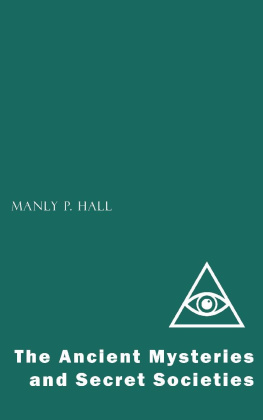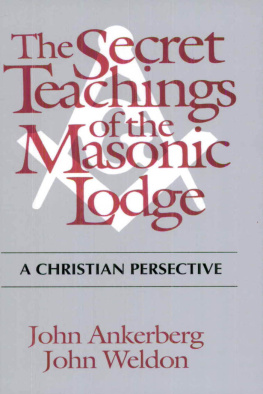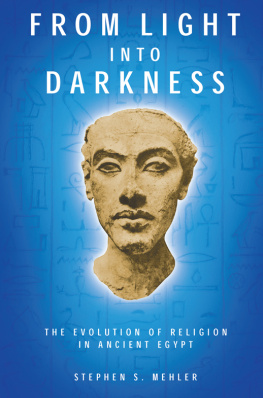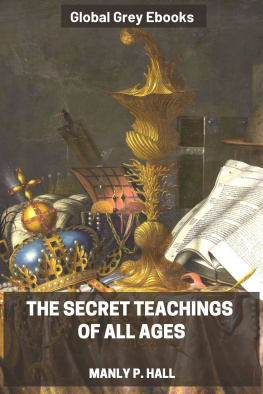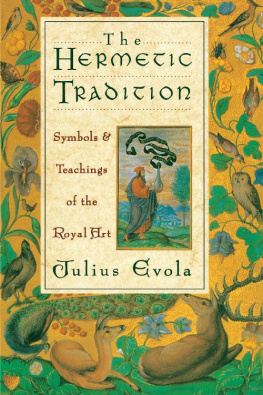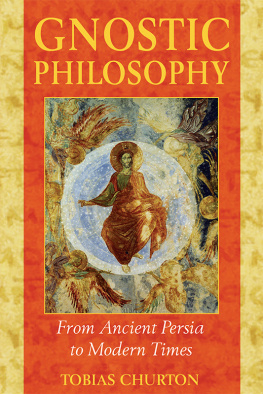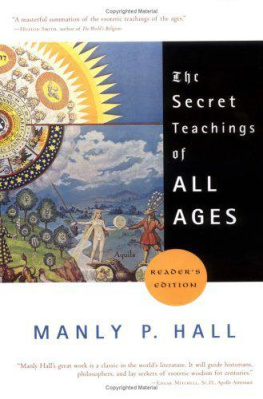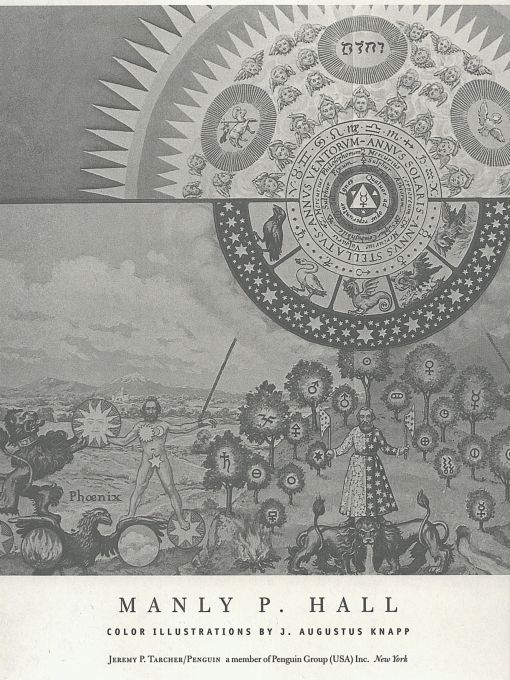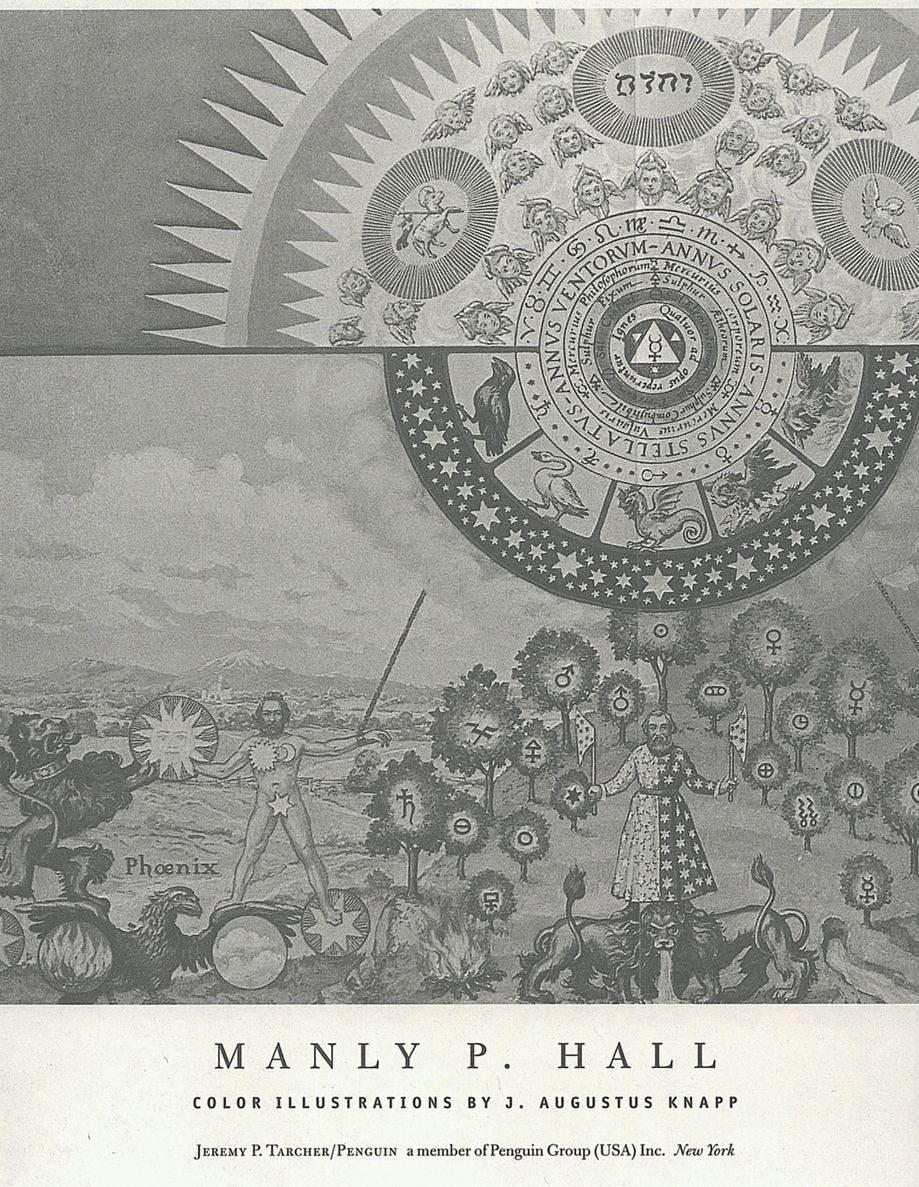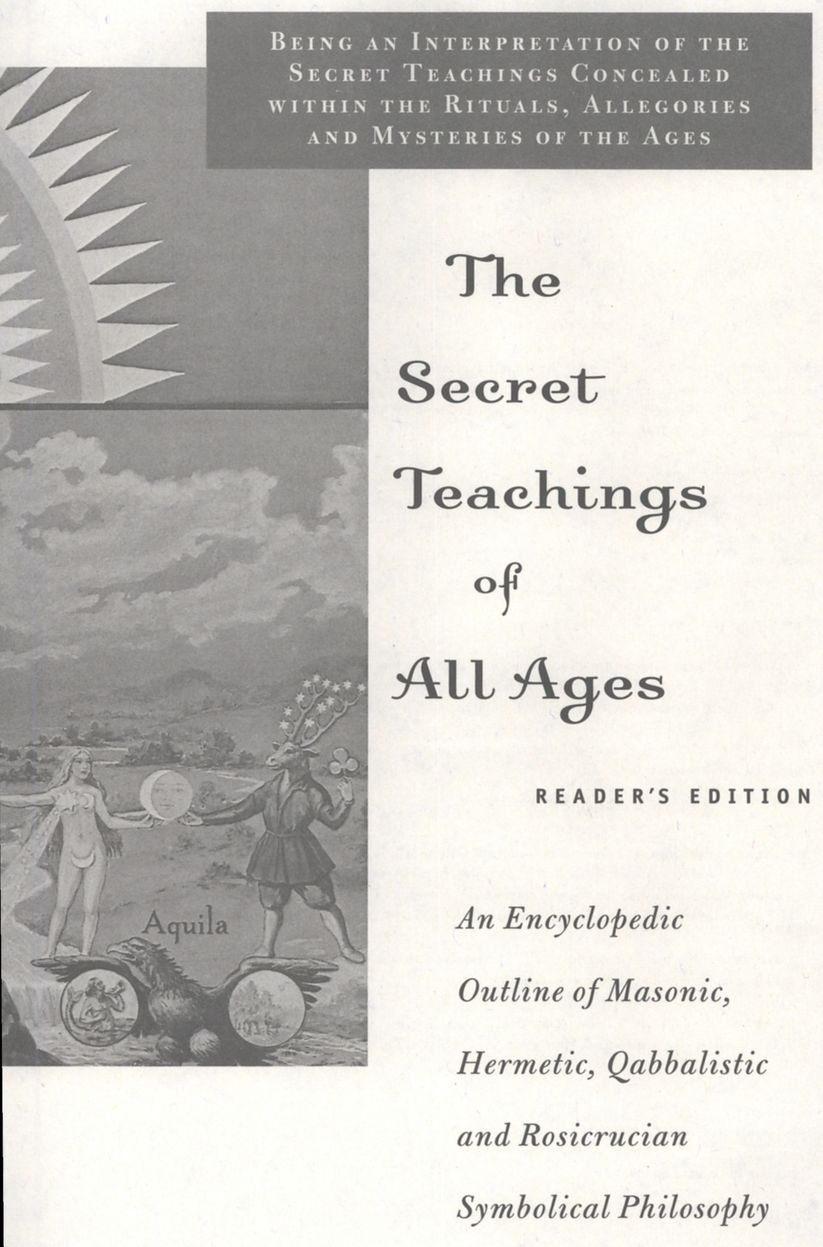Table of Contents
This book is
dedicated to the
Rational Soul
of the World
Preface to the Readers Edition
That you hold in your hands is a volume of the ages. Originally published in 1928 by the mystical scholar and sage Manly P. Hall (1901-1990), this booklike none before it and none that have followedis a codex to the ideas and mysteries that resonate within the symbols, myths, and philosophies that have guided humankind since its earliest efforts at self-knowledge.
The Philosophical Research Society (www.prs.org) of Los Angeles has been the publisher of The Secret Teachings of All Ages since Mr. Hall founded the organization in 1934. Today, PRS continues to publish the original edition of the Secret Teachings and, through public lectures, research, publications, and the University of Philosophical Research, continues his legacy. With that legacy in mind, PRS has worked with Tarcher/Penguin to create this new Readers Edition of Mr. Halls classic work.
This edition brings a new level of accessibility to Mr. Halls magisterial volume. The text is fully reset and the pages renumbered according to contemporary numerals, rather than the Roman numerals of the original edition. The original features fifty-four color plates by die artist J. Augustus Knapp and more than two hundred line drawings. This edition includes some of the finest of the color plates and approximately one hundred of the most pertinent line drawings.
Otherwise, the book is largely unaltered. It retains Mr. Halls original index andwith the exception of small excisions for clarity and ease of usefeatures his complete unabridged text.
OBADIAH S. HARRIS, PH.D.
President
Philosophical Research Society
April 1, 2003
Preface to the Diamond Jubilee Edition
On the occasion of the sixtieth anniversary of this volume, it seems fitting to reflect on the circumstances that led to its writing.
The original edition was planned and issued in the interval between the termination of World War I and the Great Depression of 1929. During this time I had a brief career on Wall Street, the outstanding event of which was witnessing a man depressed over investment losses take his life.
My fleeting contact with high finance resulted in serious doubts concerning business as it was being conducted at that time. It was apparent that materialism was in complete control of the economic structure, the final objective of which was for the individual to become part of a system providing an economic security at the expense of the human soul, mind, and body.
I felt strongly moved to explore the problems of humanity, its origin and destiny, and I spent a number of quiet hours in the New York Public Library tracing the confused course of civilization. With a very few exceptions modern authorities downgraded all systems of idealistic philosophy and the deeper aspects of comparative religion. Translations of classical authors could differ greatly, but in most cases the noblest thoughts were eliminated or denigrated. Those more sincere authors whose knowledge of ancient languages was profound were never included as required reading, and scholarship was based largely upon the acceptance of a sterile materialism.
Fortunately, since contemporary scholarship had little regard for the wisdom of the past, there was no premium on the earlier texts. As a result I assembled a fair collection of the works of those forgotten sages to whose labors the world owes a tremendous debt of gratitude. It seems that my efforts were timely, and the first two editions of the book were sold out before the volume came off the press. There was certainly a blessing upon the book. Written by a young man in his twenties, it has now passed through a number of editions with over thirty printings and is still a best seller in its field.
We are now coming to the end of the twentieth century, and the great materialistic progress which we have venerated for so long is on the verge of bankruptcy. We can no longer believe that we are born into this world to accumulate wealth and abandon ourselves to mortal pleasures. We see the dangers and realize that we have been exploited for centuries. We were told that the twentieth century was the most progressive that the world has ever known, but unfortunately the progression was in the direction of self-destruction.
To avoid a future of war, crime, and bankruptcy, the individual must begin to plan his own destiny, and the best source of the necessary information comes down to us through the writings of the ancients. We have tried to select the most useful and practical elements of classical idealism, combining them into a single volume. The greatest knowledge of all time should be available to the twentieth century not only in the one shilling editions of the Bohn Library in small type and shabby binding, but in a book that would be a monument, not merely a coffin. John Henry Nash, who designed this book, agreed with me.
It is our sincere hope that this book will endure into the twenty-first century and continue to make available the contents of countless books and manuscripts that have been destroyed by the ravages of war. This volume is not devoted to my own opinions but is a tribute to the memories and labors of the noblest of mankind. May the twenty-first century bring with it a restoration of those systems of inspired instruction so desperately needed.
MANLY P. HALL
Los Angeles, California
October 1, 1988
Foreword
It is an honor to have been invited to write this Foreword. My aim shall be to set forth briefly what a careful study of this important volume, over a period of years, has meant to me.
Associations of men and women bound together by oaths and obligations into esoteric fraternities have descended from the earliest times and bear witness to a natural inclination to perpetuate doctrines which lead to the good of mankind.
With the growth of social consciousness, these secret societies became the custodians of the highest cultural concepts. Their initiation rites were symbolic pageantries suitable to inspire veneration for the Divine Mysteries, and admiration for the powers of nature and of God. Most of the mythologies of classical nations were originally rituals of secret societies, and it is a mistake to assume that earlier cultures accepted as literal the elaborate theology and legendry found in their traditions.
Historically the secret societies were closely identified with state religions. Basic knowledge was believed to have been bestowed by the gods in a remote age. The esoteric philosophies have always been taught by means of secret organizations, to which candidates were admitted only after appropriate preparation and initiatory rites. These spiritual brotherhoods of scholars, sages, and mystics have flourished among all peoples, ancient and modern, and in all parts of the world.
In the program of the Mysteries each individual must grow into the comprehension of truth. Before he could be entrusted with the divine powers of mind and will, he must accept knowledge as a responsibility to his Creator and his world, rather than as an opportunity for the advancement of personal ambitions. The masters of the Mysteries taught secret practices and disciplines by which the properly qualified disciples could develop the potent abilities latent within the soul, and so, come into conscious communication with spiritual realities.


